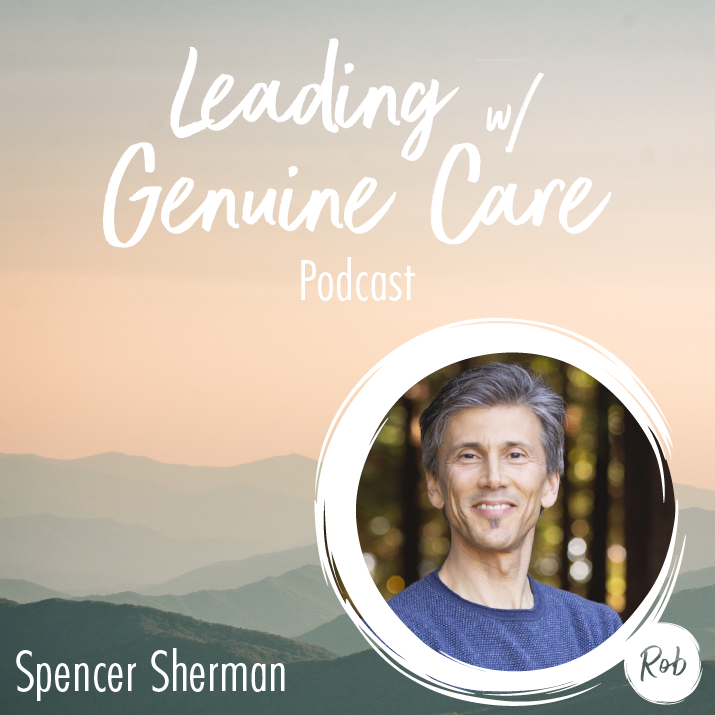Spencer Sherman l Your Worth Is More Than Just a Number
“When we're no longer grasping for the money, it often flows more easily to us." — Spencer Sherman
This week's guest is Spencer Sherman, CEO of Abacus Wealth Partners, a certified mindfulness teacher and author of The Cure for Money Madness. He also teaches people how to have a healthier relationship with money through his online courses and is on the faculty at NYU's Inner MBA program.
In this episode Spencer and I dig into how our relationship with money is shaped by our parents, cultural messages, and the historical events we live through. Spencer grew up in Queens, where, he says, a lot of people focus on working hard, but he also grew up with the sense that there was never enough. After earning an MBA at Wharton Business School, he went to work for an investment firm. There, he focused on making money and working long hours.
Only when a fire broke out in his building did Sherman start to question whether money was needed for happiness at the expense of his health. He went on a ten-day silent retreat because, he says, "I'm a sucker for a challenge." That experience taught him that he could feel joy and a sense of having enough with few possessions, by just going inward. It was the beginning of redefining net worth to include more than just numbers on the balance sheet.
Once he incorporated more mindfulness in his life, Spencer took a step back and started working on his relationship with money. He opened his own business and learned to set boundaries around his time for self-care activities like sleep and exercise. His business was one of the first to offer fee-only services, so he could help people objectively with their financial planning. In 2002, he joined with a friend to create Abacus Wealth Partners, a values-driven financial firm.
One practice Spencer teaches in his workshops is helping people become more conscious and aware of their thoughts and feelings around money. For example, he sometimes experiences anxiety about making a big purchase, even though he has the money. In those moments, Spencer explains, he reverts to being a child and feeling afraid he's going to run out of money. He has to take a moment, take a breath (he calls it the "money breath") and remind himself he's okay, that his adult self is in control. Similarly, he advises people take a few days to consider any big purchases, to make sure they are not acting out of impulse.
Money can be our greatest teacher, Spencer says. Once we stop and become aware of our relationship with money, we can learn so much more about ourselves.
In this episode of Leading with Genuine Care, you’ll also learn:
How lessons about money are learned, from previous generations and from the events we live through as a child and adolescent.
How improving our relationship with money can help us cultivate patience and resilience.
Why finding your own balance - with work and play, with risk and safety - is important.
How gratitude can help us focus more on what we have and less on what we don't.
Why feeling the sense of "enoughness" may be the key in shifting to a healthier relationship with money, and open up more abundance into your life.
What practice Spencer has used when he's felt envious.
How a taxi driver in India taught him about having enough.
What leaders can learn from the Dalai Lama.
Why beginners are often better at investing over the long term.
Connect With Spencer Sherman
Website
https://www.linkedin.com/in/mindfulspencer/
The 2023 Do Nothing Retreat is open for registration (5 spots remaining)
Join us from October 8-12 for The Do Nothing Retreat, a mindfulness meditation retreat suitable for meditators at all levels The retreat will enable you to cultivate a deeper mindfulness practice while in a peaceful and rejuvenating mountain location. Previous attendees have reported experiencing increased productivity, increased focus, and new perspective – among other benefits – as a result of what they learned.

